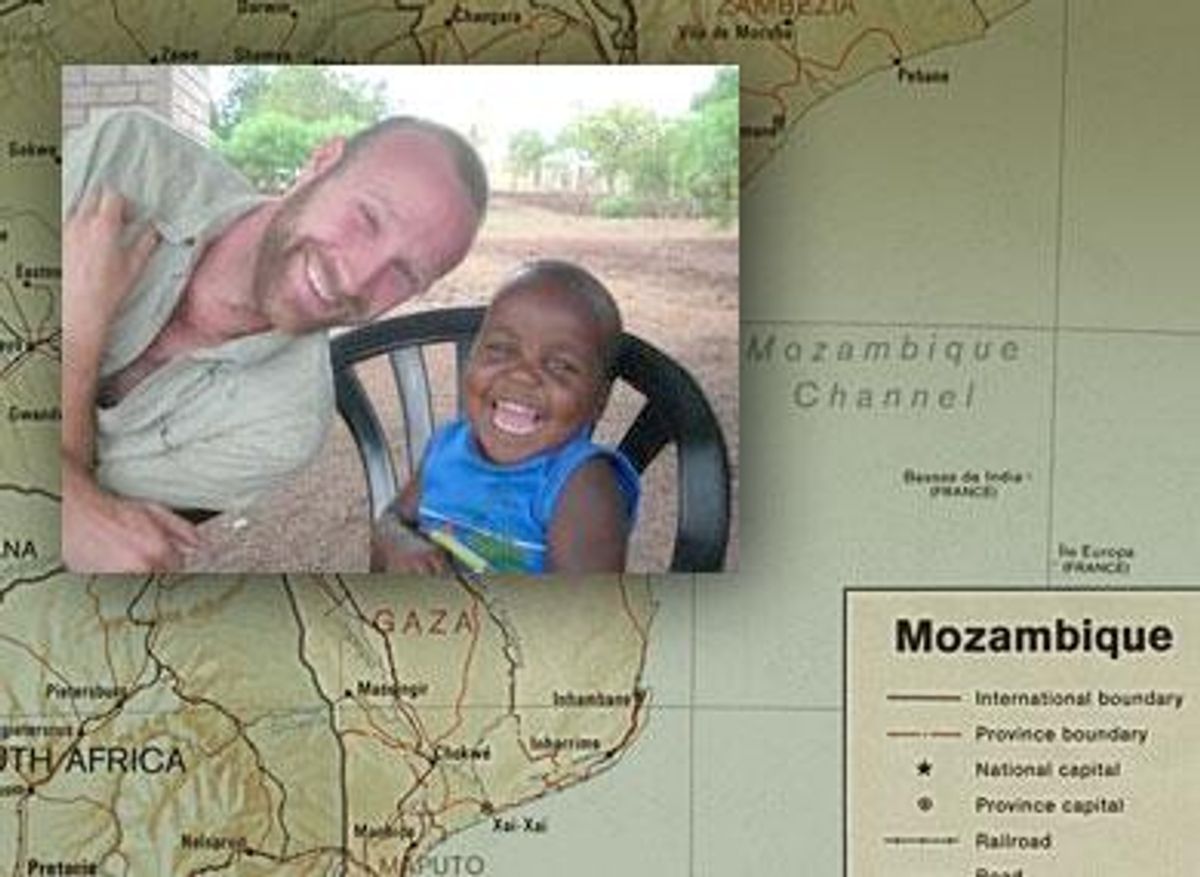It had been a
year since I started serving as a health volunteer in the
Peace Corps in Mozambique. With the election approaching,
everyone was in a tizzy with anticipation to see
history made and the United States taken in a new
direction. On the evening of November 4, we gathered up the
volunteers who lived nearby and held a party at the house of
an expat friend. There we could watch the results be
announced by CNN on her satellite television almost as
if we were back in the States. I, along with millions
of others overseas, stayed up till a ridiculous hour
(3 a.m. for our group) to watch the election results come in
and celebrate as Barack Obama was named our next
president.
November 5, the
e-mails started. Since I get Internet access only about
once a week and it's my main way of communicating with
friends and family back home, I was a little surprised
to find a barrage of e-mails ranging from exuberant to
absolutely furious.
Despite the
elation of my fellow volunteers and myself over the
presidential and congressional results, the passage of
Proposition 8, the anti-gay marriage amendment, in
California seemed to loom over our other victories
like a dark cloud blocking the sun. Everyone I spoke to was
downright flabbergasted that a state like California could
pass such a dreadful law by popular vote. When it came
out that African-Americans and Hispanics, both of whom
had enjoyed LGBT support in the past, had turned out
in large numbers to vote against marriage equality, that
seemed to be the last straw.
From the other
side of the world, I began to see my friends stand up and
take notice of the political fights that were happening
around them. Most people I knew back in Los Angeles
had always been out and proud, but they hadn't always
politically active. This was a wake-up call to everyone
that progress still requires participation.
So the e-mails
began. I got chain letters protesting the Mormon Church
and questioning its tax-exempt status; I got personal
commentaries on people's disappointment and
anger; and I got Evites to protest parties and rallies
around the city. The gays were really getting their shit
together!
Having been
raised in South Carolina, where I also attended university,
I became used to having to protest anytime the LGBT
community was under attack -- which unfortunately was
quite frequent.
However, when I
moved to Los Angeles, I was amazed at how comfortable gay
people were. Having carved out their niche in the various
neighborhoods, they had built up strength and
protection so that most local politicians
wouldn't be caught dead saying any thing against the
gay community.
But I also
noticed that many LGBT people sometimes forgot what it was
like elsewhere in the country -- not to mention the state --
for gays, lesbians, and transgender individuals. Many
in our community had gotten too comfortable in their
bubble of Los Angeles or West Hollywood and forgot
that there is still work to be done in progressing an agenda
of equality.
I'll admit
that I was one of those people who left my activist feelings
at college in return for a calmer life consumed with more
pleasant everyday issues.
In turn, we
forgot that you can't take traditionally liberal
votes for granted. That every political interaction on
our part, in this case with African-Americans or
Hispanics, needs to also be a teaching opportunity on
issues important to us.
Indeed, while I
am disappointed that I can't be back in California to
march against Prop. 8, I find comfort in knowing that those
same friends who normally wouldn't have been
riled up over political issues are now marching en
masse. With this wake-up call, the fire of activism and
pride, of self-respect and community involvement, seems to
have been lit for my generation, and we are already
seeing positive results.
Now, instead of
receiving angry e-mails and accusatory chain letters, I
am hearing friends talk about how invigorating it is to take
part in standing up for their rights, as this is the
first time that they have done so in such an active
way. I hear people talk of the Stonewall protests as
if they are bringing back the spirit of the time and
applying it to our current fight for marriage
equality. Positive messages of strength and pride are
being created by these demonstrations, and my
generation is being affected by them.
So here I remain
in Mozambique working for a different campaign, one of
health care and education, but one with the same goal of
equal human rights for every person. And while my
friends and colleagues march for our right to love and
honor equally in California, I will keep watching from
a distance, proud of those who have stood up to be counted
and optimistic about the future of our cause.


















































































